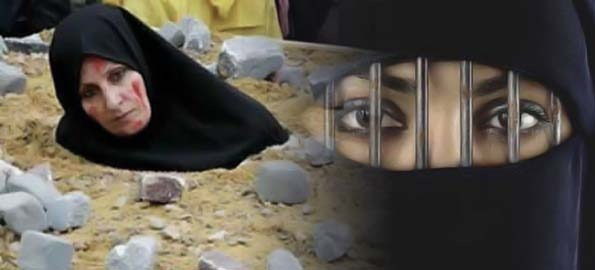Attention all Saudi women: If you need assistance of any kind, you are on your own. The government of Saudi Arabia made this clear to all women residing in their country when, late last month, it chose to arrest a 75-year-old widowed woman for being in the company of unrelated males who were simply helping her.
In an embarrassing display of law enforcement, the Saudi government convicted and sentenced the widow to 40 lashes and four months imprisonment for mingling with her late husband’s 24-year-old nephew and his friend, after she had asked them to deliver some bread to her house. (Since her husband’s death, she often asks others for help. The Saudi government claims that she has sinned.)
As a Muslim who studies, understands and follows true Islamic tenets, such incidents sadden and infuriate me. There is nothing in classical Islamic jurisprudence, nor in the Holy Quran, that would condone this punishment. It simply is not an Islamic injunction.
Saudi Arabia has become infamous for its religious police (known by the Arabic word “mutaween”), who have the power to arrest unrelated men and women caught socializing, seize products regarded as “un-Islamic” and enforce Islamic dress codes and dietary laws. In March 2002, they forcibly barred schoolgirls from escaping a burning school in Mecca because the girls were not wearing head scarves and black coats. Consequently, 15 girls died and 50 were injured.
How sad it is that the country where Islam found its roots now has a justice system that contradicts the very message of Islam. Islam does not give anyone the power to decide who is a sinner. Islam does not give anyone the right to enforce religious practices on others. The Holy Quran openly declares in Chapter 2 verse 257: “There shall be no compulsion in religion.”
Under Saudi Arabia’s strict (and incorrect) interpretation of Islamic Sharia law, women face severe discrimination, particularly in matters like education, employment and the justice system. Although they make up 70% of university enrollment, women comprise only 5% of the Saudi workforce. They cannot travel abroad, be admitted into a hospital, be examined by a doctor or leave the house without permission or in the company of an immediate male relative. There is no basis for such restrictions in Islam.
Although King Abdullah recently has tried to put a more moderate face on his nation – he fired the chief of the religious police and a cleric who called for the killing of television network owners that broadcast “immoral content” – Saudi Arabia still has a long way to go. All judgments in Saudi courts are based on the judge’s personal interpretation of Sharia.
Women particularly face discrimination in the Saudi legal system. In 2007, seven men abducted a teenage woman and an unrelated man from a mall in Saudi Arabia and raped her. The seven men were sentenced to two to nine years in prison, but the woman was also convicted of breaking the law by not having a male guardian with her and for being alone with an unrelated male. She was the victim but was still sentenced to six months in prison and 200 lashes. Where is the justice in that?
So, to the government of Saudi Arabia, I say: You are spitting on the face of the very religion you claim to serve. As a proud Muslim, I say that Islam does not need you. This religion of peace will continue to thrive because of its fundamental teachings of love, tolerance, patience and justice. The love and equity taught by Islam will soon conquer the hatred and injustice practiced by these so-called “Muslims.”

